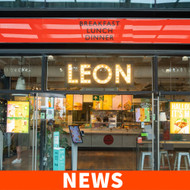Has Leon Lost Its Way? Asda Owners Accused of Betraying the Brand’s Healthy Roots
Posted by Emma on 5th Oct 2025 Reading Time:
Henry Dimbleby, co-founder of the once trailblazing healthy fast-food chain Leon, has accused its current owners of abandoning the company’s founding principles in favour of profit-driven junk food.
Dimbleby, who launched Leon in 2004 with the goal of providing “delicious food that is convenient and healthy,” says the brand has lost its original purpose. Speaking out four years after selling his stake in the company, he criticised Asda’s owners—billionaire brothers Mohsin and Zuber Issa—for steering the brand into unhealthy territory.
Leon was acquired in 2021 by the Issa brothers’ EG Group and later transferred to Asda, their supermarket chain, in a £2 billion deal designed to ease EG’s financial pressures. Dimbleby claims that since then, Leon’s health-focused identity has been eroded. “I know how easy it is to be sucked into just going for the thing that’s tasty—the sugar, the salt, the cheap,” he said, adding that recent social media content promoting chips cooked in air fryers typified the brand’s decline. “They’ve realised chips sell, air fryers sell—that’s the cheapest way to make money. But in the long term, that’s going to destroy the brand.”
From Health Pioneer to High-Calorie Competitor
When Leon first opened, it sought to redefine fast food. The menu featured fresh salads, grilled meats, and wholesome dishes, all served in eco-friendly cardboard boxes. The restaurants even transitioned to a more refined dinner service in the evenings, offering wine and a calm atmosphere.
However, after a pandemic-era financial crunch, EG Group stepped in with a £100 million rescue acquisition. Since then, the company has aggressively expanded Leon’s reach—both in physical stores and supermarkets. The brand has launched frozen and microwaveable ranges, including chicken burgers, fish fingers, and hash browns, alongside supermarket coffee stations branded under Leon’s name.
This evolution has also seen a broadening of the menu, introducing indulgent items such as burgers, cookies, baked fries, and cakes. While Leon still offers gluten-free and plant-based options, including its vegan “Love Burger” and poached-egg breakfast pots, critics argue that the balance has shifted too far from the brand’s founding ethos.
A Brand at a Crossroads
Despite efforts to diversify, Leon has struggled to maintain footfall in its physical outlets. Its latest financial report revealed that revenues fell to £62.5 million in 2024, down from £64.9 million the previous year, as consumers tightened spending in a challenging economic climate. The company has since reduced its workforce—down from 1,302 to 1,079 employees—while halving its pre-tax losses from £19.6 million to £8.5 million.
For Dimbleby, these figures may reflect a deeper issue than just macroeconomic pressures. A longtime government health adviser and advocate for better nutrition, he argues that Britain’s productivity crisis is linked to poor diets. Leon, once a shining example of fast food done right, now risks becoming part of the problem rather than the solution.
Whether Leon’s shift toward mass-market convenience will secure its financial future—or erode the trust that once made it distinctive—remains to be seen. But as Dimbleby warns, the easy path to profit may come at the cost of the brand’s soul.



